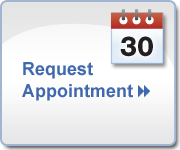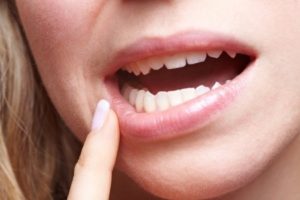Bruxism: Does It Really Matter?
When you grind or clench your teeth, it’s called bruxism. It can happen during the day or at night (sleep bruxism). What matters is whether your bruxism causes TMJ, headaches, or teeth damage. Bruxism may seem like just a bad habit, but it can harm your overall health.
How Do You Know If You Have Bruxism?

There are several symptoms of bruxism:
- The sound of your grinding teeth may wake up your partner
- You have chipped or worn down teeth
- Unusual tooth sensitivity
- Painful, tight, or tired jaw muscles
- Earaches
- Headaches
- The insides of your cheeks are badly chewed
- Tongue indentations
Why Do You Have Bruxism?
It is difficult to say what causes bruxism. It could be stress, anger, or frustration. Sometimes it is because your upper and lower teeth misalign. Bruxism may indicate other sleep problems. Many people don’t realize that bruxism may be a side effect of psychiatric prescriptions.
How Do You Treat Bruxism?
- Reduce the stress in your life. If you know of anxiety triggers, avoid them. Perhaps visit a professional counselor or learn stress management strategies. Begin exercising or mediating; build relaxing habits.
- Wear a mouthguard (available over the counter) or splint (specially made for you by your dentist) when you sleep.
- If bruxism has worn down your teeth, you may require reconstructive treatment, such as crowns, overlays, and correcting misaligned teeth.
- Ask your dentist about behavior therapy. Concentrating on your mouth motions and practicing certain positions may relieve bruxism.
- Your doctor may recommend muscle relaxants, but typically bruxism doesn’t respond to other medications.
- Avoid coffee, tea, alcohol, chocolate, sugary drinks, and smoking. These habits may worsen bruxism.
- Stop chewing on anything other than food, including chewing gum and pens.
- Try sleeping with a warm washcloth resting on your cheeks in front of your earlobes. This relaxes tight jaw muscles.
Visit Your Dentist for More Teeth Grinding Tips for Treating Bruxism
We recommend making an appointment to see your dentist. Osborne Family Dental guarantees excellence in dentistry and compassion for people; we don’t just treat teeth – we treat you like family. Make an appointment or ask us questions. We’re eager to help!








 You should speak with Dr. Osborne as soon as possible if you experience any of the symptoms related to stopping breathing, specifically episodes of “gasping for breath” while sleeping or awakening from sleep feeling out of breath. In addition, if your snoring is loud enough to wake someone or is loudest after periods of what appear to be episodes of not breathing, you should schedule an appointment immediately. In addition, if your inability to concentrate or short attention span affects your ability to work effectively or safely, or any of the symptoms from this list last more than a couple days, consult with Dr. Osborne and what steps to take next.
You should speak with Dr. Osborne as soon as possible if you experience any of the symptoms related to stopping breathing, specifically episodes of “gasping for breath” while sleeping or awakening from sleep feeling out of breath. In addition, if your snoring is loud enough to wake someone or is loudest after periods of what appear to be episodes of not breathing, you should schedule an appointment immediately. In addition, if your inability to concentrate or short attention span affects your ability to work effectively or safely, or any of the symptoms from this list last more than a couple days, consult with Dr. Osborne and what steps to take next.